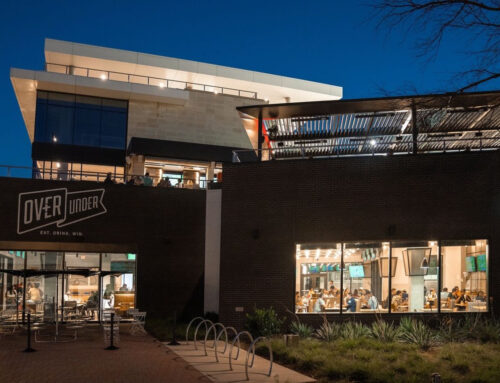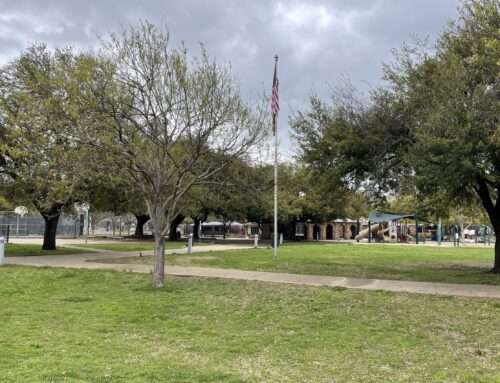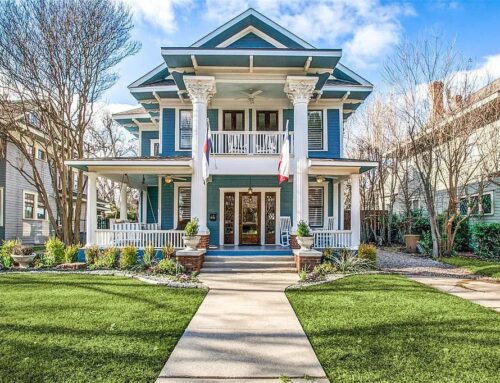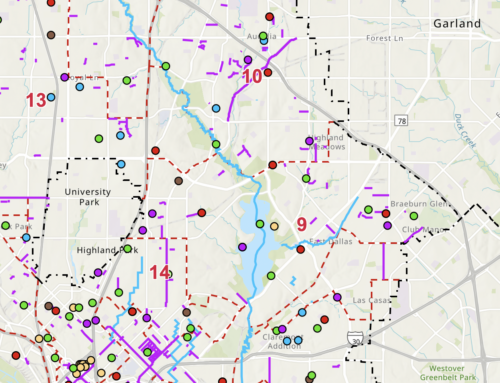It’s easy to write about teardowns. Just call them McMansions, disparage the good taste of the people who do them, and you’ve pleased everyone who opposes teardowns. Or, on the other hand, you can wrap yourself in the flag, proclaim the God-given right to private property, and you’ve pleased everyone who approves of teardowns.
But just because something is easy to do doesn’t mean it’s the right thing to do. The issue of teardowns is infinitely complicated, and how we resolve it may well determine the future of our neighborhood. This means it cannot be solved by blindly adhering to one side or the other, and the name-calling that often results is even more counterproductive. The idea that we’re fomenting class warfare at the Advocate, as one letter writer recently said about our coverage of the subject, is silly. We’re talking about two groups of mostly upper middle class people here, not some mob in ragged clothing with bad teeth who are storming the lord’s castle.
I don’t know that there is an immediate answer, but I do know that we must start to find one. And the first step in that process is to accept that the other side has a point. Those of us who oppose teardowns, and I include myself in that group, must realize teardowns are here to stay, and nothing we can do will change that.
This is Texas, not Manhattan, and there is neither the political will nor the popular support to outlaw teardowns. Remember what happened to the Dr Pepper building on Mockingbird near Greenville, perhaps the most architecturally significant structure in the city that wasn’t in Fair Park? It’s a grocery store today. Yes, we have tools to control teardowns, like conservation districts and stepped up code enforcement, but they’re just tools, not a panacea.
And those who do teardowns, whether property owners, builders or buyers, must accept that we have a legitimate reason to be concerned with what is being built next door. The pro-teardown people too often claim we’re questioning their taste in homes, which lets them feel self-righteously indignant. I’m not naïve enough to think that isn’t part of it, because many teardowns are just plain ugly. But our objections are more substantial than aesthetics, taking into account how the new homes change the character of the neighborhood, what will happen to these homes when their owners move to the suburbs in search of better schools, and the like. We don’t ask you to agree with us — just acknowledge that our opinion is valid.
Because once each side has accepted that the other is not evil, we can start to find the middle ground necessary to craft a compromise. This will not please many people — how many nasty letters will I get, from both sides, for saying this? — but compromise is necessary. The current situation of teardowns here, teardowns there may well make parts of our neighborhood look like gated subdivisions in Collin County, and not even the pro-teardown people can want that. Otherwise, they’d live there.
Each side must give a little. Those of us already here must devise some sort of standard that will make the teardowns palatable to each side. Oddly enough, the local homebuilders group has a set of voluntary guidelines that would make a good start.
Those who want teardowns must acknowledge that just because they can afford to build a house doesn’t mean they should do it. More money doesn’t make more right. After all, why would you want to live in a house that doesn’t match the neighborhood, that’s practically a slap in the face of your neighbors? Would it be so much trouble to put the garage in the back instead of in the front, where it sticks out like a zit on a teenager’s face?
In the end, we must realize we’re in this together. If we don’t, there is more acrimony, more bitterness and more name-calling. This is too good a place to live to put up with that.





